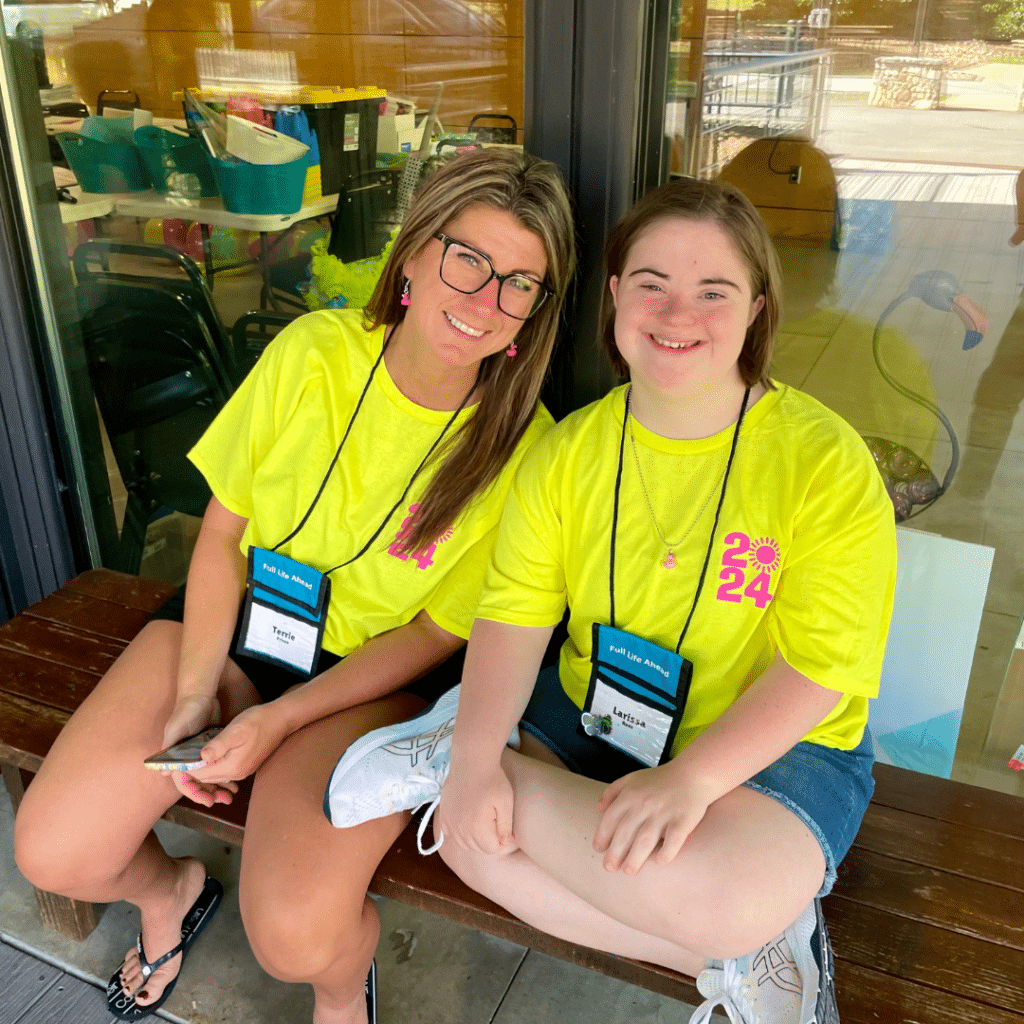By Katherine Carol
Does school prepare your special needs child for adulthood? Yes and no. Kind of. But you can and do.
Will the school get your child a job? Possibly. 
Would you like to improve the odds of your soon-to-be-an-adult child’s future employment?
Start before graduation. Research, educate and learn about supported employment and customized employment opportunities. Think of it as part of your continuing parent education. The more you know, the more you will achieve.
As you are reading this, the thought bubble above your head is saying, “Isn’t that the school’s job?” Not really, although they can certainly help.
I know you remember the moment you learned your child had special needs. Not prepared for this, you took charge, asked questions, and explored options. Your parental leadership is once again required.
My guess is that you had little experience in case management, nor were you a skilled negotiator as you battled insurance companies. You most likely asked friends and colleagues for ideas about who might be the right doctor or therapist. Like many parents of children who experience a special need, you were probably terrified the day your kiddo started kindergarten. You hoped and prayed someone cared and could walk you through the new world of education you had just entered.
You probably sat up nights wondering how you were going to get it all done. You persisted, you grew, and you accomplished more that you thought possible.
Supporting your transitioning student requires much of the same effort as it did in the beginning. Dig deep into the well of your experience. Y you’ve got this! You are a mature special needs parent, seasoned and ripe with nearly two decades of experience. You are wise beyond your years and facing the truth is what you do.
The truth is that unless your student works at least a part time job before they reach for their diploma, they may never work. However, you can change that reality.
Read between the lines: You are your child’s best job developer. Really? Yes.
The best plan is to begin the job search while your student is still in school. Next best time is now. Expect them to work and chances are they will. Begin and the path will appear.
Start a “Launch Fund”. A launch fund is similar to a college fund. Start small. A few dollars a week can add up quickly and provide the funds for a micro business loan.
Attend AL-APSE’s statewide employment conference. As a family member you may be able to receive a discounted registration fee, or perhaps an agency will cover the registration for you as a scholarship. You can also ask the Chamber of Commerce or local Rotary to sponsor you and your family member.
Look for summer jobs and intern opportunities. These don’t have to be full-time positions to start. Shoot for at least ten hours a week. Let me tell you a little secret I used to help Mikelle get her first job when she was sixteen. I looked for summer jobs programs for teenagers and asked them to include Mikelle. They had never worked with someone with a significant disability, but were willing to learn if they had support. I worked with the transition coordinator and we obtained funds normally used for “extended school year” aka “Summer School,” which many children with special needs are eligible to use. We simply used them for a part-time job coach, hiring her paraprofessional for the summer to support Mikelle in her summer job.
As you go about your daily routine, do a little community mapping. Explore small business opportunities like lawn mowing, errand running, watering gardens, lemonade stands, pet sitting, dog walking, raking leaves. If your family member is tech -savvy, look into helping a small business do some social media posting, video editing for YouTube or teaching seniors how to navigate their new smart phone. Be creative.
Not sure you are ready for job development? Consider this startling reality: high school may be your child’s peak life experience. When I heard that fact, I panicked. After twenty years of hard work, the thought that Mikelle’s life could fall into rapid decline after graduation shocked me into action. Determined, we asked for help from friends and family. We used our network to help Mikelle achieve her goals.
Were sacrifices made? You bet. Was it worth it? Absolutely!
Be patient. Just start. Learn from other families. Understand that you and your family are unique in your experiences — and while employment is a goal, it is different for each student.
Let’s start with basics and in the next blog in our series we will explore strategies. 
Get your paperwork in order. High tech or low tech, it doesn’t matter. Gather relevant paperwork such as Social Security cards and correspondence, Individual Educational Plans, Individual Transition Plans, medical records, basic financial information (like child support payments) together in an accessible and portable filing system.
You will need these during the application process for Social Security and Vocational Rehabilitation. You can find out if your student is eligible before they graduate. Contact Vocational Rehabilitation prior to your student turning eighteen to determine eligibility.
Start learning about Social Security benefits and work incentive programs. The complicated Social Security system is far from logical. Ask for guidance when sending in your application. Give yourself time to learn the ropes and find an experienced parent or provider to help you. Follow this link for more information: http://www.ssa.gov/schoolofficials/faqs_students.htm
Gather letters of recommendation from teachers, clergy, volunteer experiences and recreational camp counselors. Place them in a portfolio and scan them on to a personal website if you want. Personal websites are a trend to watch for storing records, creating portfolios and communicating between providers, individuals, and families.
Include pictures of your child participating in their community. For example, if your family member enjoys technology, show them using it. It is athletics they love, take pictures of their sporting activities. If they love church and are part of a Bible study, show them in worship with other folks in the congregation.
As mentioned in the previous blog—preparation is essential as you travel the road to transition. Look for trailblazers. Experienced parents and professionals can guide you as you negotiate the adult service delivery system. Once your son or daughter turns eighteen, things begin to change. Gathering relevant and necessary connections leads you to the information and strategies your family need as your plan the few years.
Make the valuable connections with other positive and action-oriented parents. Mikelle, now thirty-two years old, continues to experience changes in her life. Colorado is in the midst of transforming our service delivery system. Every few weeks I reach out to my list of parent experts seeking new information.
Now take a moment to reflect on your amazing family member, pay attention to their natural rhythms, what ideas and dreams your student has for working, living and continuing their educational process. Decide how to approach employment with the understanding it is part of your parental “continuing education”.
With a little luck, a bit of creativity and a dose of persistence—opportunity will find you.

